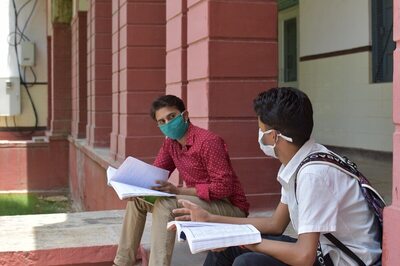
views
Knee surgery can be a life-changing procedure, providing relief from pain and improving mobility. However, it is crucial to take proper precautions during the recovery period to ensure the best possible outcome. Dr Himanshu Gupta, Joint Specialist and Orthopedic Surgeon, and founder of Amicare Hospital, shares six major precautions that patients should follow after knee surgery to achieve a successful recovery.
“The key to a successful recovery after knee surgery lies in diligently following the prescribed precautions. People believe that knee surgery is very dangerous and recovery can take months but with the current advancements of robotics in science, recovery is just a matter of a week or two after the surgery. If we opt for Robotic Knee Surgery the complete process of healing and recuperating is quick. People can get back to their normal routine in just 2 Weeks. With today’s technology recovery is not a huge task to be accomplished, if you follow the instructions from your Surgeon you can get back to your normal life,” says Dr. Himanshu Gupta, Joint Specialist and Orthopedic Surgeon, Founder of Amicare Hospital.
Let’s explore the six major precautions to follow after knee surgery:
Adhere to Your Rehabilitation Plan:
Following knee surgery, your orthopedic surgeon will provide a personalized rehabilitation plan. Stick to this plan diligently, as it is designed to aid your recovery and strengthen the knee joint. Attend all physical therapy sessions and perform prescribed exercises regularly. Gradually increase the intensity as you progress, but remember not to push yourself too hard to avoid potential setbacks.
Keep the Incision Site Clean and Dry:
Proper wound care is crucial to avoid infections. Keep the incision site clean and dry at all times. Gently wash the area with mild soap and water and pat it dry with a clean towel. Avoid soaking the wound in water, and refrain from swimming or taking baths until your surgeon gives you the green light.
Utilize Assistive Devices:
In the initial stages of recovery, you may require assistive devices such as crutches or a walker to prevent putting excessive weight on the operated knee. Use these devices as recommended by your surgeon. Gradually, as your knee gets stronger, you can transition to a cane before eventually walking unassisted.
Monitor Medication and Pain Management:
Take all prescribed medications on time and as directed by your healthcare provider. Pain management is crucial during the recovery period, as it helps you maintain an active role in your rehabilitation. If you experience any unexpected side effects or prolonged pain, consult your doctor immediately.
Maintain a Balanced Diet and Hydration:
A well-balanced diet plays a vital role in the healing process. Consume foods rich in essential nutrients, vitamins, and minerals that promote tissue repair and boost your immune system. Staying hydrated is equally important, as it helps prevent complications and enhances recovery.
Avoid Impactful Activities and Strenuous Movements:
During the healing process, refrain from engaging in activities that place undue stress on the knee joint. Avoid high-impact exercises, running, jumping, and any movements that could potentially strain the knee. Instead, focus on low-impact exercises like swimming or stationary biking, as recommended by your physical therapist.
Recovering from knee surgery requires patience, dedication, and adherence to your surgeon’s guidelines. Remember to consult your orthopedic surgeon if you have any concerns or questions during the recovery period. With proper care and attention, you can look forward to a successful and smooth recovery after knee surgery.



















Comments
0 comment